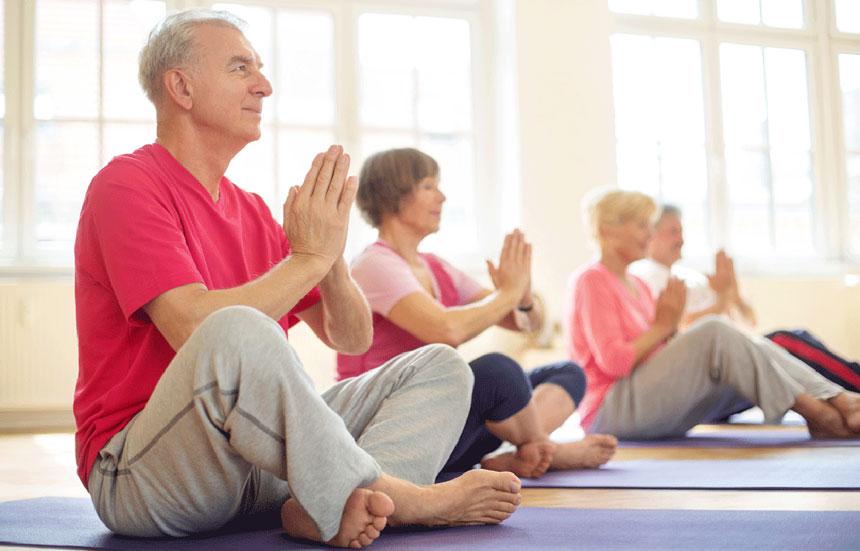Is Yoga the Perfect Workout for You?

For many, yoga is the ultimate low-impact exercise. But yoga isn’t for everyone. Read on to find out if yoga is really right for you.
Effects of Yoga on the Joints
Good: It’s easy on your joints.
Yoga can help improve strength, balance and coordination without putting a lot of pressure on joints. And it’s safe. Very few people experience musculoskeletal injuries while practicing yoga and most injuries don’t require medical attention.
Bad: Certain poses should be avoided, or at least modified, if you have spine issues or arthritis.
If you have a condition such as herniated discs, stenosis, osteoporosis or arthritis, you’ll probably have to modify or maybe even skip certain yoga poses to avoid pain and injury.
Forward flexion poses such as downward-facing dog, big toe pose and child’s pose can exacerbate herniations; extension poses like sphinx, cobra and cow poses are problematic for stenosis. And postures that work the spine beyond its limits of flexion and extension raise the risk of bone fractures in osteoporotic people, according to a study published in Mayo Clinic Proceedings.
Finally, if you have arthritis, experts suggest selecting a gentle form of yoga to practice and avoiding postures that involve balancing on one foot or place pressure on the joints. You should also take a break from yoga during arthritis flare-ups.
Effects of Yoga on Heart Health
Good: It’s good for your heart because it helps lower stress.
A number of studies suggest practicing yoga helps control and relieve stress and anxiety. The physiological connection between stress and heart disease is not completely understood; however, stress can interfere with living a heart-healthy lifestyle, according to the American Heart Association. Stress raises blood pressure, promotes smoking and drinking and triggers cravings for high-fat and high-sugar comfort foods.
Bad: It lacks cardiovascular fitness benefits.
Yes, this is a generalization — power yoga and high-speed vinyasa yoga are effective heart-rate raisers. But most yoga styles aren’t considered aerobic activity.
The Convenience Factor
Good: You can practice at home.
This is a huge benefit if you’ve been practicing yoga for years and thoroughly understand the technique. DVD and online classes make it easy for you to get your workout even if you can’t make it into the studio. If you’re not an expert yogi; however, you may not be able to recognize poor alignment, raising your risk of an injury -- particularly when performing rotational postures.
Bad: Studios can be pricey.
The price for taking yoga classes on a regular basis can really add up. Classes generally range between $12 and $16, while class packages often run around $150 for 10 classes. Many studios also charge monthly fees for unlimited classes.
So, Is Yoga Good for You?
Before beginning a workout or changing your routine, check with your primary care physician. Don’t have a primary care doctor? MDVIP-affiliated physicians have time to really work with you and develop a wellness plan that can help you find the most appropriate form of physical activity. Find a physician near you and begin your partnership in health »


